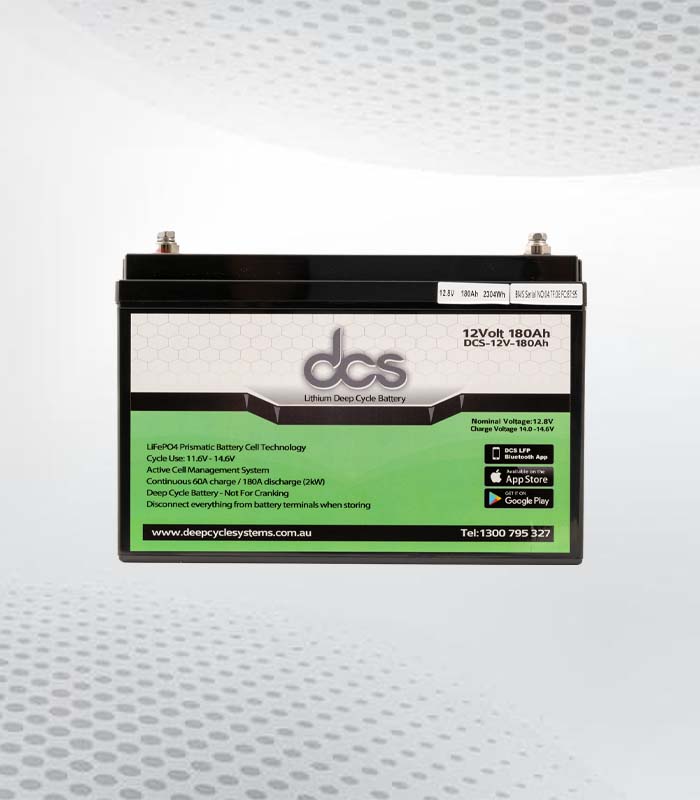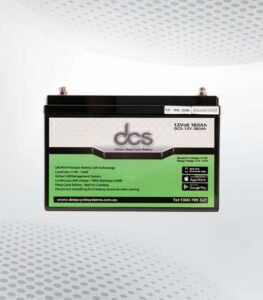Deep-cycle RV batteries are crucial for any recreational vehicle, providing the necessary power for lighting, appliances, and other electrical systems while on the road. To ensure that your deep-cycle RV battery performs optimally and lasts as long as possible, it is essential to implement proper maintenance practices and consider key factors when choosing a new battery. In this blog post , we will delve into the ways to maximize the lifespan of your Deep cycle RV Battery.
Key Factors to Consider When Choosing best RV Deep Cycle Battery
Choosing the best RV Deep Cycle Battery ensures a reliable travel power source. Several key factors should be considered to make an informed decision:
1. Capacity:
The capacity of a deep-cycle RV battery refers to the amount of energy it can store and deliver over time. Choosing a battery with the right capacity is essential to meet your power requirements during trips. Higher capacity batteries can provide longer runtime, allowing you to run more appliances and devices without worrying about running out of power.
2. Voltage:
Voltage is another important factor to consider when selecting a deep-cycle RV battery. Different RV electrical systems may require specific voltage ratings to operate efficiently. Ensure the battery voltage matches your RV’s requirements to avoid compatibility issues and ensure optimal performance.
3. Size and Weight:
The size and weight of the battery are important considerations, especially in the limited space of an RV. Opt for a battery that fits your available storage space and can be easily installed in your RV without adding unnecessary weight. Lightweight batteries are ideal for reducing overall vehicle weight and improving fuel efficiency.
4. Cycle Life:
The cycle life of a deep-cycle RV battery indicates the number of charge-discharge cycles it can withstand before its performance begins to degrade. Choosing a battery with a high cycle life ensures long-term reliability and durability, allowing you to enjoy consistent power output over many trips.
5. Maintenance Requirements:
Different types of deep-cycle RV batteries have varying maintenance needs. Some batteries may require regular water level checks, terminal cleaning, and proper storage practices to prolong their lifespan. Understanding and following the recommended maintenance procedures can help optimize the performance and longevity of your battery.
6. Compatibility with RV Electrical System:
Ensuring compatibility between your deep cycle RV battery and your RV’s electrical system is essential for seamless operation. Verify that the battery’s specifications, such as voltage and capacity, align with your RV’s power requirements to prevent any potential issues and maximize performance.
Proper Maintenance of a Marine RV Deep Cycle Battery
Proper maintenance of a Marine RV Deep Cycle Battery is crucial to ensure its longevity and optimal performance. By following a few simple maintenance practices, you can extend the life of your battery and avoid unexpected issues during your travels.
One key aspect of maintaining a deep cycle RV battery is regularly checking the water levels, especially for flooded batteries. Ensure the water levels are within the recommended range to prevent damage and ensure efficient operation. Additionally, clean the battery’s terminals periodically to remove any corrosion or buildup which can affect the battery’s performance.
Proper storage is essential to prevent deterioration when the RV battery is not in use. Store the battery in a cool, dry place away from direct sunlight and extreme temperatures. Consider using a battery maintainer or trickle charger to keep the battery in good condition during storage.
Avoid overcharging or deep discharging the battery, as these practices can reduce the battery’s lifespan and performance. Follow the manufacturer’s guidelines for charging and discharging the battery to maintain its health and efficiency.
Outlining the necessary steps for maintaining 12v Deep Cycle RV Battery
Maintaining your 12v Deep Cycle RV Battery maximizes lifespan and ensures reliable travel performance. By following a few key steps, you can prolong the life of your battery and avoid potential issues that may arise. Here are some essential maintenance practices to keep your deep cycle RV battery in top condition:
 1. Regularly Check Water Levels (For Flooded Batteries):
1. Regularly Check Water Levels (For Flooded Batteries):
For flooded deep-cycle RV batteries, checking and maintaining the water levels regularly is important. Ensure the water covers the plates inside the battery to prevent drying out and damage. Use distilled water for topping up if necessary.
2. Clean the Terminals:
Over time, corrosion can build up on the battery terminals, affecting the battery’s performance. Periodically clean the terminals with baking soda and water to remove corrosion and ensure a good connection.
3. Proper Storage:
When your RV is not in use, store the deep cycle battery in a cool, dry place away from direct sunlight and extreme temperatures. Consider using a battery maintainer or trickle charger to keep the battery charged during storage.
4. Avoid Overcharging or Deep Discharging:
Avoid overcharging or deep discharging to prevent damage to your deep-cycle RV battery. Use a quality battery charger compatible with deep cycle batteries and follow the manufacturer’s recommendations for charging and discharging cycles.
By following these maintenance steps, you can prolong the lifespan of your deep-cycle RV battery, maintain optimal performance, and ensure a reliable power source for your adventures on the road. Regular maintenance will help you get the most out of your battery investment and enjoy worry-free camping experiences.
Common Signs Indicating a Need for Battery Replacement
- Reduced Capacity: If you notice that your deep cycle RV battery is holding less charge than it used to, this could be a sign that it is nearing the end of its lifespan and may need replacement. Reduced capacity can lead to frequent recharging and inconvenience during your travels.
- Slower Charging Times: A healthy deep cycle RV battery should charge within a reasonable timeframe. If the battery takes much longer to charge than usual, it could indicate internal issues that may require a replacement.
- Bulging or Leaking: Visual signs of bulging or leaking on the battery casing indicate internal damage or electrolyte leakage. These issues can compromise the safety and performance of the battery, necessitating a replacement to avoid potential hazards.
- Sulfation Buildup: Sulfation occurs when sulphate crystals accumulate on the battery plates over time, reducing the battery’s ability to hold a charge effectively. If your deep cycle RV battery shows signs of sulfation buildup, such as decreased performance or increased charging times, it may be time to consider a replacement.
- Consistent Low Voltage Readings: Monitoring the voltage readings of your deep cycle RV battery is crucial to assess its health. If you consistently observe low voltage readings even after a full charge, it could indicate internal issues or deterioration that warrant a replacement for optimal performance.
Listing signs suggesting a 12 Volt Deep Cycle RV Battery may need replacement
Regarding your 12 Volt Deep Cycle RV Battery, paying attention to certain signs can be crucial in determining when it’s time for a replacement. A reduced capacity is one of the most common indicators that your battery may need replacing. If your battery is not holding a charge like it used to or draining much faster than before, this could signify that it’s reaching the end of its lifespan.
Another red flag to watch out for is slower charging times. If your battery takes longer to charge fully or is struggling to reach its maximum capacity, it could be a sign that it is deteriorating and may need to be replaced soon.
Physically inspecting your deep-cycle RV battery is also essential. Look for any bulging or leaking from the battery casing, which could indicate internal damage or electrolyte leakage. Additionally, be wary of any sulfation buildup on the battery terminals, as this can hinder the battery’s performance and longevity.
Consistently low voltage readings, even after charging, indicate that your deep-cycle RV battery may be on its last legs. If your battery is struggling to maintain a stable voltage or constantly showing low readings, it might be time to start considering a replacement.
Highlighting the importance of monitoring battery health
Monitoring battery health is crucial for preventing unexpected failures during your travels in an RV. Deep cycle RV batteries are the lifeline of your electrical system, providing power for lights, appliances, electronics, and more while you’re on the road or camping off-grid. By keeping a close eye on the health of your battery, you can avoid being left stranded without power in the middle of your adventure.
Regularly checking the state of your deep cycle RV battery allows you to catch any potential issues early on. This includes monitoring the battery’s voltage levels, inspecting for signs of damage or corrosion, and ensuring proper maintenance practices are followed. By monitoring your battery’s health, you can proactively address any concerns and avoid being caught off guard by a sudden battery failure.
In addition, implementing a regular maintenance schedule for your deep-cycle RV battery can help extend its lifespan and ensure optimal performance. This includes keeping the battery clean, checking water levels (for flooded batteries), and following manufacturer guidelines for charging and storage. By prioritizing battery health and maintenance, you can enjoy a reliable power source for all your adventures on the road.
Frequently Asked Questions about Deep Cycle RV Batteries
As you consider upgrading your deep-cycle RV battery, it’s important to address key questions that may arise during the decision-making process. Here are some commonly asked questions and insightful answers to guide you towards making an informed choice:
Q: What are the key factors when choosing a deep-cycle RV battery?
A: When selecting a deep-cycle RV battery, it is crucial to consider factors such as capacity, voltage, size, weight, cycle life, maintenance requirements, and compatibility with your RV’s electrical system.
Q: How do I properly maintain a deep-cycle RV battery?
A: To maintain a deep cycle RV battery, regularly check the water levels (for flooded batteries), clean the terminals, store the battery properly when not used, and avoid overcharging or deep discharging.
Q: What common signs indicate a deep cycle RV battery needs replacement?
A: Signs that your deep cycle RV battery may need a replacement include reduced capacity, slower charging times, bulging or leaking, sulfation buildup, and consistent low voltage readings.
Conclusion
In conclusion, upgrading your deep cycle RV battery is crucial in ensuring a reliable power source for your travels by carefully considering factors such as capacity, voltage, size, weight, cycle life, maintenance requirements, and compatibility with your RV’s electrical system. Proper deep-cycle RV battery maintenance is essential to prolong its lifespan and optimize performance. Regularly checking water levels (for flooded batteries), cleaning terminals, storing the battery correctly when not in use, and avoiding overcharging or deep discharging is key to keeping your battery in top condition. Recognizing the common signs that indicate a deep cycle RV battery may need replacement, such as reduced capacity, slower charging times, bulging, sulfation buildup, and consistent low voltage readings, is important for ensuring you have a reliable power source while on the road.
This Article Was First On Published
| Other Good Articles to Read |
| niche blogs connect |
| blogs 97 |
| Blog Stitution |
| blogs unplugged |
| blogs cotchrouge |
| blog signatr |
| blog sintonias |
| blog zilla |
| consumer forums |
| finance forums |
| g blogs |
| too blog |
| Related Business Listings |
| Directory Submissions |

